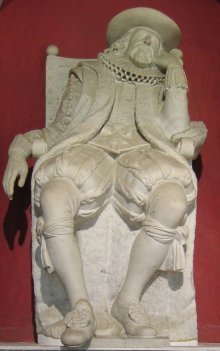
By Hamish Johnston
Anyone who has trained as a scientist has learned about the “scientific method” – but the concept remains ill-defined and its origins are a topic of debate among philosophers and historians.
In this week’s instalment of In Our Time on BBC Radio 4, Melvyn Bragg and his cabal of intellectuals discuss the role of the English polymath Francis Bacon (1561–1626) in the development of the method. Through writings such as Novum Organum Scientiarum, Bacon (right) championed the use of inductive reasoning in science. Indeed, Bacon had a very important influence on a future generation of scientists who founded the Royal Society in 1660.
Another character associated with the development of the scientific method is Isaac Newton. According to historian Simon Shaffer of Cambridge University, Newton first developed his rules of scientific enquiry to study a very non-scientific subject: the Bible’s Book of Revelation. Newton then further developed his ideas by applying them to what we would think of as science.
Rounding off Bragg’s panel are the philosophers John Worrall of the London School of Economics and Michela Massimi of University College London. The quartet go on to discuss how Charles Darwin’s 1859 On the Origin of Species was first received by Victorian scientists. Not very well it seems – Darwin’s arguments seemed to fly in the face of the scientific method because the processes of evolution could not be observed in laboratory experiments.
The team also looks at how the overthrow of Newtonian physics in the early 20th century by relativity and quantum mechanics led to a rethinking of the scientific method. Leading the way was philosopher Karl Popper with his idea of falsifiability and Thomas Kuhn with his theory of paradigm shifts.
You can listen to the programme here.



